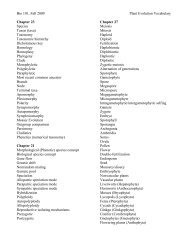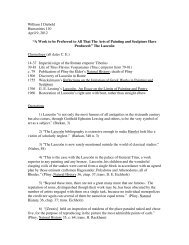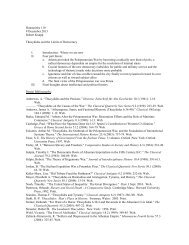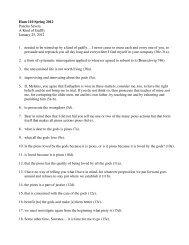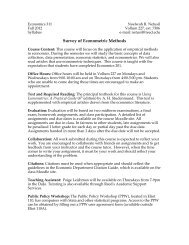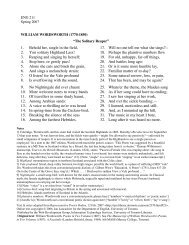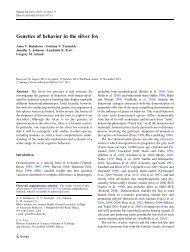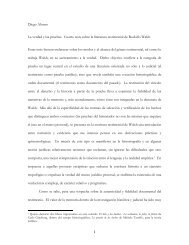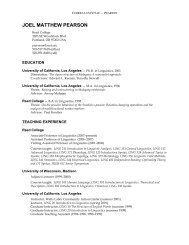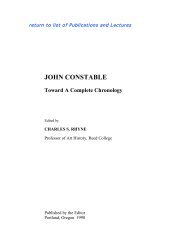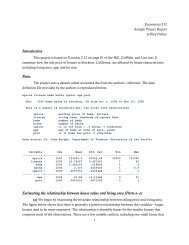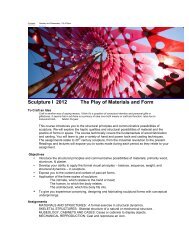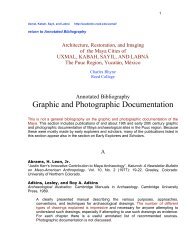REED COLLEGE SCIENCE OUTREACH PROPERTIES OF MATTER
REED COLLEGE SCIENCE OUTREACH PROPERTIES OF MATTER
REED COLLEGE SCIENCE OUTREACH PROPERTIES OF MATTER
Create successful ePaper yourself
Turn your PDF publications into a flip-book with our unique Google optimized e-Paper software.
6<br />
Lesson One- Exploring States of Matter<br />
Objectives<br />
o Students will begin to learn about matter and some of matter’s properties.<br />
o Students will learn about the three most common states of matter and observe<br />
changes between the three states of matter.<br />
Lesson Background- The Three States of Matter<br />
For the next eight weeks we will be studying a few of the basic chemical and physical<br />
properties of matter. Each lesson will focus on a different property of matter.<br />
o What is matter? Matter is everything in the world that takes up space and has<br />
mass. Matter makes up everything in the world and there are many different<br />
kinds of matter. These different types of matter have different properties.<br />
Today students will begin to explore one of the fundamental physical properties of<br />
matter. Students will learn that matter on Earth exists in one of three states: solid,<br />
liquid, or gas (matter also can take the form of plasma, but temperatures are usually too<br />
cool on Earth for plasma to form). Each state has specific physical characteristics.<br />
• Solids hold a particular shape.<br />
• Liquids have no particular<br />
shape of their own. They take<br />
the shape of the container<br />
they are poured into.<br />
• Gasses expand or contract to<br />
fill the space of whatever<br />
container holds them,<br />
whether it is a balloon or a<br />
room.<br />
When a substance changes from one phase to another, heat energy is either emitted or<br />
absorbed. The processes of changing phases are:<br />
• Melting-going from a solid to a liquid (heat energy in)<br />
• Freezing-going from a liquid to a solid (heat energy out)<br />
• Evaporation- going from a liquid to a gas (heat energy in),<br />
• Condensation-going from a gas to a liquid (heat energy out)<br />
• Sublimation-going from a solid to a gas (heat energy in)<br />
• Deposition- going from a gas to a solid (heat energy out)



